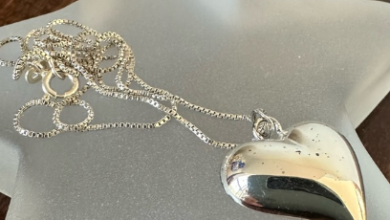
Dealing with fast-growing pubic hair can be a constant source of frustration for many individuals. While it’s essential to remember that pubic hair growth is a natural and healthy part of the body’s processes, there are various methods to slow down the growth or extend the time between hair removal sessions. In this article, we’ll explore effective ways to manage and reduce the rate of pubic hair growth.
Regular Shaving
Shaving is a quick and accessible method to manage pubic hair growth. However, it’s important to note that the hair typically grows back within a few days. To prolong the time between shaving, use a sharp, clean razor and consider applying an aloe-based moisturizer afterward to soothe the skin and prevent ingrown hairs.
Waxing
Waxing removes hair from the root, which results in slower regrowth compared to shaving. The hair can take several weeks to grow back. Regular waxing sessions can help weaken hair follicles over time, leading to finer regrowth.
Laser Hair Removal
Laser hair removal is a long-term hair reduction method that uses concentrated light energy to target hair follicles. Multiple sessions are required, but it often leads to a significant and lasting reduction in hair growth. Laser treatments can be performed at a professional clinic or with at-home devices. With advancements in technology, laser hair removal at home devices have become more user-friendly and effective, allowing individuals to enjoy the benefits of professional-grade treatment in the comfort of their own space.
IPL (Intense Pulsed Light) Devices
IPL devices work similarly to lasers but use a broad spectrum of light. These devices are available for at-home use and can effectively reduce pubic hair growth when used consistently over time. IPL hair removal device uses intense pulsed light to target hair follicles and inhibit their growth.
Depilatory Creams
Depilatory creams contain chemicals that break down the hair structure, allowing it to be easily wiped away. These creams can provide smooth results, and the regrowth is generally slower compared to shaving. It’s essential to perform a patch test before using these creams in the pubic area.
Hormone Therapy
In some cases, rapid pubic hair growth can be associated with hormonal imbalances. Consult a healthcare professional to determine if hormonal therapy or medication can help regulate excessive hair growth.
Nutrition and Diet
Certain vitamins and minerals are essential for healthy hair growth. A balanced diet rich in vitamins A, C, and E, as well as biotin and zinc, can support hair health and potentially reduce the rate of growth. Consult a nutritionist or healthcare provider for personalized dietary advice.
Exfoliation
Regular exfoliation can help prevent ingrown hairs, which can give the illusion of faster hair growth. Use a gentle exfoliator to remove dead skin cells and reduce the likelihood of hair getting trapped beneath the skin.
Professional Hair Removal Services
Consider seeking the expertise of a professional aesthetician who can provide specialized hair removal treatments such as sugaring, threading, or electrolysis. These methods can lead to slower and finer regrowth when performed by skilled practitioners.
Avoid Stress
Stress can impact hormonal balance, which may influence the rate of hair growth. Practice stress management techniques like yoga, meditation, or deep breathing exercises to help maintain hormonal equilibrium.
Conclusion
While it’s not possible to completely stop pubic hair from growing, there are various methods to slow down the rate of growth and extend the time between hair removal sessions. The choice of method should align with your preferences, budget, and comfort level. Experiment with different approaches to discover what works best for you. Remember that results can vary from person to person, and consistency is key to achieving the desired outcome. If you have concerns about rapid hair growth, consider consulting a healthcare professional to rule out underlying medical conditions or discuss potential treatments to manage it.



